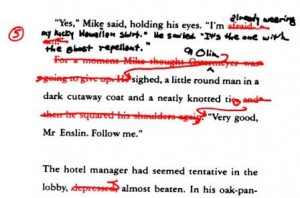by Sarah | May 8, 2012 | All About Me, All of Us, Crap, Random, Special Needs, Writing, writing tips, WTF?
[flickr id=”6271416484″ thumbnail=”small” overlay=”true” size=”small” group=”” align=”left”]When I was young I used to love the Limbo. I was really good at it and always won.
As an adult, as a parent of special needs kids, as a human being – limbo has taken on a new meaning.
It’s the in-between.
The period of nothing.
No answers.
More questions.
Infinite waiting.
In my personal life. In my pursuit of a writing career.
Limbo now consumes my life.
Tests for the kids, my husband, myself. Infinite questions on our health, our futures.
Submissions of my work to strangers for judging. The ones that might hold the key to my writing future.
I hate limbo.
If I didn’t love writing so much I’d throw in the towel and end it just to give up another source of the interminable status of ‘waiting’.
I’m not about to do that. Writing is a part of me. It gives me release and happiness.
So I suppose somehow I have to turn this new definition of Limbo into something I can live with.
I just can’t see how to make it a party game.
Maybe a drinking game…
by Sarah | Apr 22, 2012 | Critters, Writing, writing tips
 “The best writing is rewriting.” ~ E. B. White
“The best writing is rewriting.” ~ E. B. White
That is so absolutely true. The first draft of a literary project is rarely presentable, whether it’s fiction, non-fiction, or somewhere in between. My writing tends to be a “stream of consciousness” sort of event, words jotted down as the imaginings unfold.
While I’m writing, I taste, hear, smell, see, and feel the same things that my characters are feeling. I interpret it from their unique and distinctive perspectives. I tell their story as I see it flowing through their eyes. My characters and I are experiencing the story, together. I am their emissary. I am their ambassador to the reader.
I can’t just hook my readers into my brain so they can watch it like a movie, however. I need to make the life of my story real for my readers, too.
 That, my friends, is where a good critique writer (“critter”) comes in to play.
That, my friends, is where a good critique writer (“critter”) comes in to play.
It’s the critter who tells you to change your verbiage (“was” and I are still locked in an on-going death match). It’s a critter who detects that storyline or timeline flaw. “How did that character leave when he never showed up?” They’re the ones who listen to your sentences and taste the flavor of your imagery.
The best critter is someone who is your paramount cheerleader. They want you to write, to succeed, and to accomplish your goal. They motivate you. They yell at you to write when you really just want to cruise Facebook. They call for the “PowerHour” of writing that gets you one chapter closer. A good critter helps you write YOUR story. Not his or her story. The good critter offers positive and negative feedback.
A critter is your battle buddy, your writing partner, and your shoulder. They’re with you from the start, and they’ll be with you until well past the end.
Sometimes they’ll make you cry. Sometimes they’ll make you laugh.
The best writing is the writing done when you’ve truly found what it is you want to say and paired it with what it is you need to say.
Writing is the tangle of your mind and imagination, let out for the world to see. Successful critiquing is the untangling of that knot, so the world can truly see each beautiful strand.
*~*~*~*~*
Fiona is a Work-At-Home-Mom with two lovely daughters and a hyperactive dog. She is currently writing a romantic fiction novel and fending off The Muse at every other opportunity, while staring at the growing pile of “Good Ideas” that are beginning to litter her home office. Fiona has worked as an Analyst in the Army, a computer systems engineer, and is currently working as a “jack of all trades” in marketing and business operations. Fiona’s blog, The Writer’s Block (http://fionadruce.blogspot.com), archives her on-going struggle with writing, her thoughts on writing, and the very important random topic that comes to mind at 3 am in the morning and must be published.
I am very happy to welcome today’s Guest Post Author, Fiona. She’s a new friend, and a new crit partner I have found in this vast world of the WWW. We appear to be kindred spirits and I’m very glad she came by to visit today!!
by Sarah | Apr 9, 2012 | Writing, writing tips
[flickr id=”6818404384″ thumbnail=”small” overlay=”true” size=”small” group=”” align=”left”]I first started my serious attempt at writing about 5 years ago. I always enjoyed writing, I loved the challenge of it, the escape of it – but never had I thought to try for the harsh, cruel world of publishing.
Five years ago I dove in blind. No one told me how harsh & cruel it was. Nope. I learned that shiznit all on my own.
Today I like to call myself older and wiser. At least I like to pretend I’m wiser. All it ever takes is one conversation with another writer to realize I’m blind to yet another error in my writing.
I look back at my first attempts (or even first drafts) and I cringe. So many times in writing I’m a whore.
An Adverb Whore (oh, that was my longest stint into writer whoring – I had a deep, sick love for the -ly’s). Then I became a Head-Hopping Whore. I tried to fit as many of those POV’s into one chapter as I could. For a brief stint I dabbled in Purply Prose Whoring (so this still slips in once in a while – I write romance a little purple makes it in).
The other day thanks to some DFL (Another post on that soon) I found a new friend, a fellow writer. In general conversation about editing she mentioned having to take out all of the “was” in her novel.
I heard alarm bells. Screeching alarm bells.
Turns out I’m a Whore for a good (or is it bad?) “Was”. In my 90k novel, I started with 1400+ before I began weeding them out. I don’t have a target to drop them to, but I’m reviewing and removing what I can as I go. I’d like to get that number way down.
So what are you a Whore for? What slips its way into your writing without you noticing because you enjoy the company of a familiar error?
I can’t wait to get a clue-in to my next flagrant whore-out. </end sarcasm>
**********
*IGEH = Insert Grammatical Error Here
by Sarah | Mar 8, 2012 | Changing Tracks, General, writing tips
 Putting down a manuscript and stepping away is one of the hardest things I ever have to do. I’m so excited by the story, so in love with the characters, so driven to get it out there that I never just leave it alone. At least not long enough to make a difference.
Putting down a manuscript and stepping away is one of the hardest things I ever have to do. I’m so excited by the story, so in love with the characters, so driven to get it out there that I never just leave it alone. At least not long enough to make a difference.
I did this with my first novel. I couldn’t understand why agents didn’t love it as much as I did. What the editor that gave me comments was talking about. It was too close, too soon, too real. Such a part of my heart I could not attain that distance.
Just recently I looked back at that first manuscript, let myself have a little chuckle and put it back in it’s safe place. I still love the story, but now I see all the error. The glaring, horrific errors. In truth, my muse (overbearing bitch that she is) – well she’s already planning alterations to the story. A way to bring it new life in the future. To gut out the heart of the story and rework into something actually usable. That is a long way off. The story needs major overhaul and I may never touch it again – or it may be another few years if I do. Distance gave me one hell of a perspective.
I did that with Changing Tracks too. While the structure is infinitely better, it still needed work. I thought that baby was shimmering when I sent it out into the world. In my eyes, it totally was. Until two months later when I got notes from an editor on the partial. That was when the nagging voice of the muse started to creep up with thoughts on how to change it.
I ignored the voice. Told the muse to shove it. I had partials and fulls out and I was not touching it. Period.
I moved on. Wrote another book or two. The full manuscript was out in the WWW. I was not going to touch it.
Well, as I said before the muse can be a demanding bitch. After a year of hearing me say “no touchy” I got screamed at in a variety of languages to shut up and listen. The notes we’d received, and our own personal reflection showed us not only weak chapters, but weak characters and plot holes.
A major character without a spine was not going to get me anywhere. A scene with the main character weak and out of it when she’s supposed to be a strong, smart and capable woman would never fly. One minor character was in the entire wrong profession and personality.
Minor changes turned into overhauls. Great lines remain, great scenes are untouched. New chapters have appeared, and characters have evolved.
Unlike my first novel, this ms has hope. It’s strong, and getting stronger every day.
Now if I can just leave it alone (again) once I’m done with these edits (or find the cash to obtain an editor’s eye) to make sure I don’t jump the gun again.
by Sarah | Jan 3, 2012 | Changing Tracks, The Tribe, Writing, writing tips
 2011 was fairly productive for me.
2011 was fairly productive for me.
In total 300,000 words were written. First drafts of the 1st 3 Tribe books were completed. Changing Tracks was rewritten & edited.
I was a featured writer on Band Back Together, with plans to write more for them.
There were ups & downs with the writing challenges I participated in, but I stretched my writing and wrote things that surprised even me.
I got ideas for stories that I never thought I would. I feared I only had one story in me, one genre. Instead I’ve reached beyond that.
My good friend Mary finally wrote and finished her first novel, and I got the pleasure of being her Alpha.
I’ve had agents take closer looks at my novel, some going all the way to asking for the full. Had a publisher give me notes and ask to see it again after a tougher-look edit.
So what’s in store for 2012? What goals am I setting for myself?
- To polish The Tribe until it shines, get that sucker out into the query world.
- To take another look at Changing Tracks. After time away I can narrow down a few flaws.
- Write something that isn’t a full length novel. A short, a flash, another article & see it published.
- To get down storyline ideas for at least one stand alone novel, & start it if possible. My penchant for series is not helping my publishing goals.
- To write. Every day that I possibly can.
- To blog. This blog gets so very neglected, and therefore so does my writing network.
- To be more disciplined. Get on a schedule & stick with it. This extends beyond writing, but includes writing.
- Write. Every day. (Yes. That does require repeating)
That’s it. I don’t call them resolutions – because I suck at those. I’m not awesome at the whole “goal” thing either, but I still have dreams and in order to get there I have to write down the path ahead of me.
Here’s to a fruitful, creative, and accomplished 2012 for all of us!
*~*~*
Picture Source
by Sarah | Sep 5, 2011 | Writing, writing tips
 I forgot to read.
I forgot to read.
I know – the first tip you ever hear when you’re writing is to read. Read a lot.
I got so wrapped in my stories. In writing what was in my head. Trying to improve what I’d written.
For the past three or four years I’ve written hundreds of thousands of words.
I’d read maybe 6 books. All by the same 2 authors, in relatively the same genre. Written in the same form (first person POV). Not even a little bit close to my genre.
Then seven months ago I sent in a full manuscript to an agent.
And somehow stopped writing.
Not because I was biting my nails waiting on a reply (I’m not new to this game) – just because real life got in the way.
Plus, I was tired. Like I said, I’d written hundreds of thousands of words. I’d made progress and improvements but I needed a break. I was too wrapped up and attached to my own work, and I knew it.
I needed to separate. Not just because an agent had my MS, but because I was so wrapped up I couldn’t see the forest for the trees, and I knew it – plus I had other ideas but I couldn’t seem to get them on paper for any amount of effort.
Then I picked up a book. And another. I remembered a commitment I’d made to myself at the beginning of the year to read 50 books this year. I used to read tons of books every year, I could handle 50, surely.
Since then I’ve read books of all kinds.
Urban fantasy, Romance, Fiction, Mystery, Suspense, even a memoir, and stuff of very little substance. Books written from every POV under the sun. Books that are YA; books that make me uncomfortable; books that make me laugh out loud and my husband shake his head at me.
I’ve read 39 books this year (to be fair, there’s one or two in those numbers that I didn’t/couldn’t finish I disliked them so much).
Three weeks ago I came back to my writing.
I realized how, in some ways, I’d pigeonholed myself in what I’d written.
I’ve found new inspiration and drive to create new stories. I’ve found renewed vigor and the ability to look at my old stories in new light. My editing has gone so much smoother. My writing has been soming so much easier.
Don’t forget to read.
Sometimes it’s good to get out of your own head and into someone else’s for a while.
Apparently even my own characters needed a break (even if they never truly stopped rattling around in my head).





